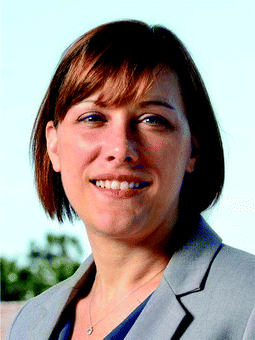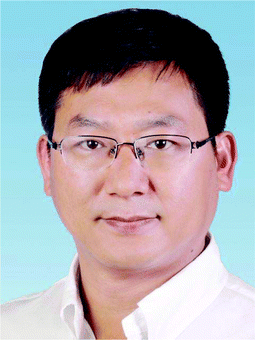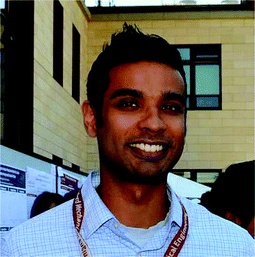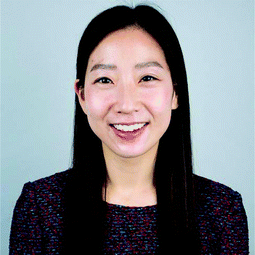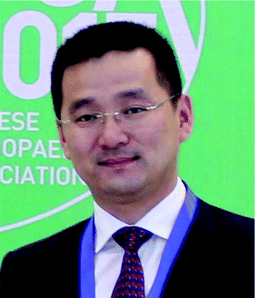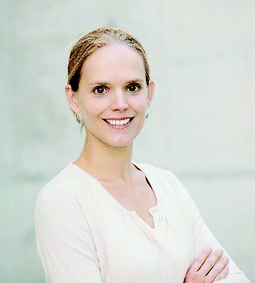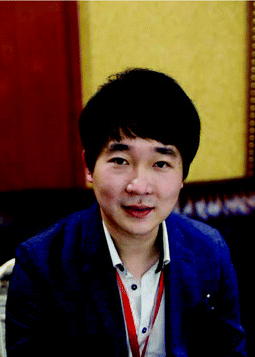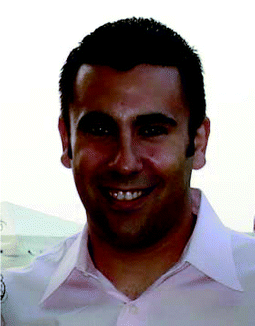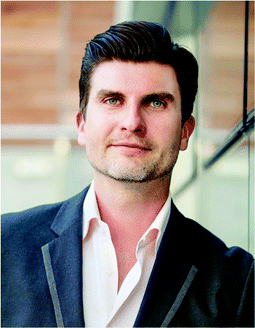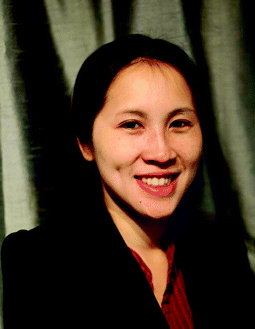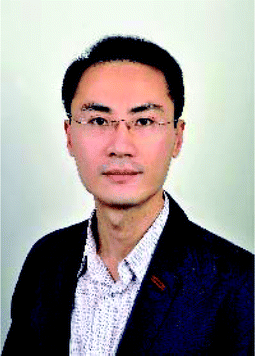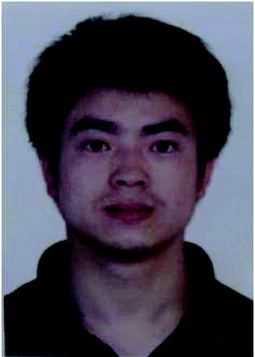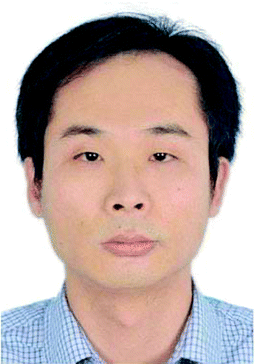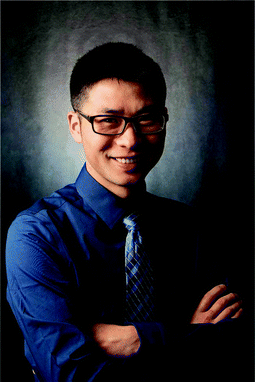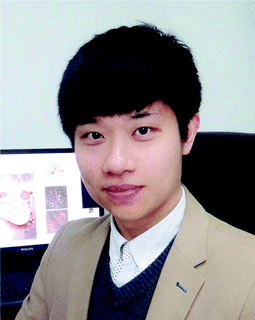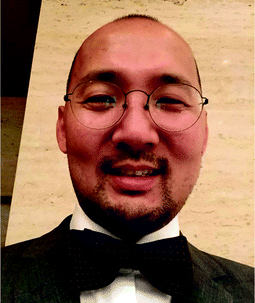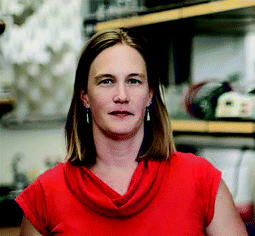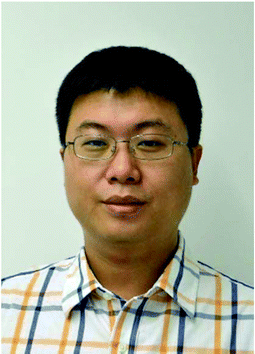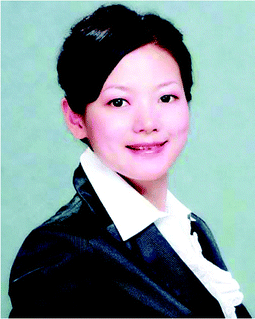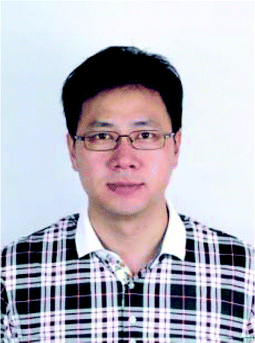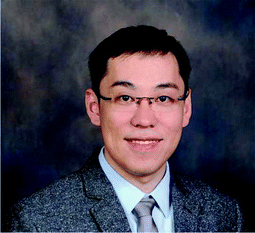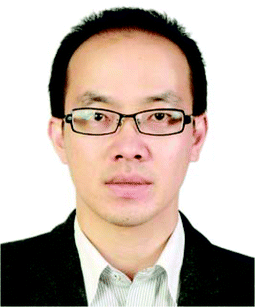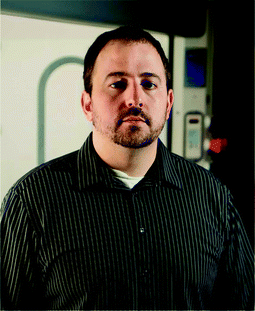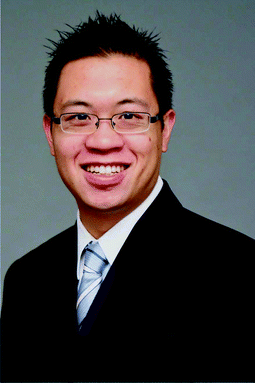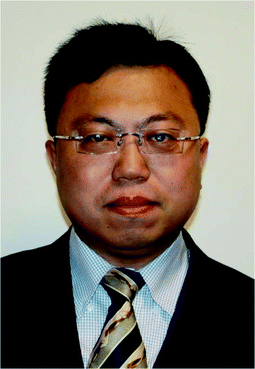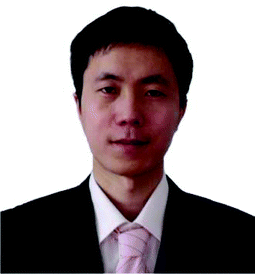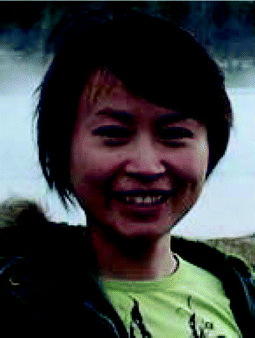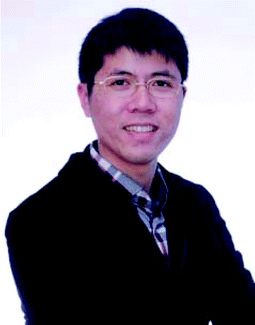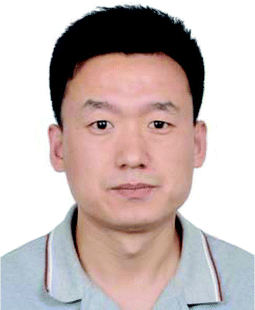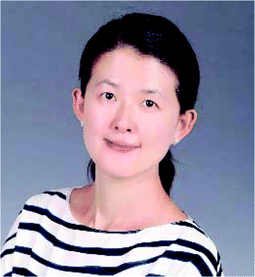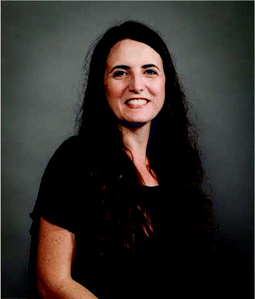DOI:
10.1039/C7BM90033C
(Editorial)
Biomater. Sci., 2017,
5, 1357-1366
Biomaterials Science Emerging Investigators 2017
We are delighted to present the Emerging Investigators themed issue of Biomaterials Science. This issue follows on from the great success of our 2014 Emerging Investigators Issue – we are truly grateful for the community's positive response. The Emerging Investigators themed issue is dedicated to highlighting the very best work from scientists in the early stages of their independent careers.
All contributors to this themed issue have been highly recommended as early career scientists whose work has made a significant impact to shape and define the future of biomaterials research. This issue offers more than 30 minireviews, reviews, communications and articles ranging from nanomedicine and biomimetic materials to molecule delivery systems and hydrogels for applications including cancer therapy, imaging and tissue engineering.
Since the creation of the journal in 2013, we have been focused on emerging scientists who will shape the research of tomorrow by producing the most exciting research. Thanks to the support of the community, we have been able to promote sterling science and support a very lively and engaged community. We believe that the impressive body of work contained in this themed issue will give valuable insight into state-of-the-art research in the field of biomaterials and will be a milestone in the development of future biomaterials research.
We were delighted to guest edit this Emerging Investigators issue and would like to thank all contributors for making this issue such a pleasure to read. We would also like to extend our thanks to members of the Editorial and Advisory Boards for their expert opinion and suggestions.
Professor Sarah Heilshorn, Editorial Board Member
Professor Jun Wang, Associate Editor
Benjamin D. Almquist is a Lecturer in the Department of Bioengineering at Imperial College London. He received his B.S. (
Magna Cum Laude) in Materials Science & Engineering from Michigan Technological University, followed by his M.S. and Ph.D. in Materials Science & Engineering from Stanford University. While working for Professor Nicholas Melosh at Stanford, he was awarded the Materials Research Society Graduate Student Gold Award. He then joined the group of Professor Paula Hammond at MIT, where he received an NIH Ruth L. Kirschstein Postdoctoral Fellowship to develop self-assembled wound dressings for delivering temporally coordinated biologics to chronic wounds. His group at Imperial now works at the interface of materials science, nanotechnology, and tissue repair to develop new strategies for modulating the process of wound healing.
Ovijit Chaudhuri is an Assistant Professor in the Department of Mechanical Engineering at Stanford University. He earned a bachelors degree in engineering physics at the University of California, Berkeley. Then, he earned a doctorate in Bioengineering as a student in the joint graduate program in Bioengineering at UC Berkeley and UC San Francisco, working in the field of cytoskeletal mechanics. From there, he went on to do a postdoctoral fellowship at Harvard University, researching in the areas of biomaterials, mechanotransduction, and cancer biology. His group's research interests are in understanding how mechanical cues regulate cell biology. More information can be found at: http://chaudhurilab.stanford.edu.
Eun Ji Chung is a Gabilan Assistant Professor in the Department of Biomedical Engineering at the University of Southern California. She received her Ph.D. from the Interdisciplinary Biological Sciences Program and the Department of Biomedical Engineering from Northwestern University, and finished her postdoctoral training at the Institute for Molecular Engineering at the University of Chicago. Professor Chung is a recipient of the NIH Pathway to Independence Award, and her research interests include molecular design, nanomedicine, regenerative medicine, and theranostics towards clinical applications including cardiovascular and kidney diseases.
Wenguo Cui is the director of the Regenerative Biomaterials Laboratory (BBL) of the Orthopedic Institute at Soochow University. He received his Ph.D. degree in Biomaterials at Southwest Jiaotong University in 2009. He was also a visiting scholar at Harvard University from 2013 to end of 2014. His research interests lies in multi-disciplinary translational medical research using micro- or nanoscale fibrous-scaffolds & hydrogel for tissue regeneration and drug delivery applications.
Patricia Y. W. Dankers, Ph.D., is associate professor in the department of Biomedical Engineering and the Institute for Complex Molecular Systems, at the Eindhoven University of Technology, the Netherlands. She obtained her master's degree in chemistry from the Radboud University Nijmegen, her first Ph.D. in technical natural sciences from the Eindhoven University of Technology (2006), and her second Ph.D. in medical sciences from the University of Groningen (2013). Her particular research interests are on the design and synthesis of bioinspired functional biomaterials to be used in various biomedical applications. Besides her passion for scientific research she also loves to promulgate science to the general public, and she enjoys teaching her two little sons about the chemistry of daily life.
Laura De Laporte graduated from the University of Ghent as a Chemical Engineer. She obtained her Ph.D. at Northwestern University in the laboratory of Lonnie Shea, where she focused on the development of scaffolds for spinal cord repair. During her postdoc at EPFL, Switzerland, she worked with Jeffrey Hubbell in the field of regenerative hydrogels and protein engineering. Presently, Laura is leading a research group at the DWI – Leibniz Institute for Interactive Materials in Aachen, Germany, where she is coordinating the Biohybrid Materials for Biological Systems research program. Her research interests cover the development of novel biomaterial constructs for tissue regenerative purposes.
Dan Ding received his Ph.D. degree in Polymer Chemistry and Physics from Nanjing University in 2010. After postdoctoral training in the Department of Chemical and Biomolecular Engineering in National University of Singapore, he joined Nankai University in March 2013, where he is currently a professor in College of Life Sciences, Key Laboratory of Bioactive Materials, Ministry of Education, and State Key Laboratory of Medicinal Chemical Biology. His research interests are focused on the design and preparation of organic molecular imaging probes and self-assembling nanomedicines as well as the exploration of their biomedical applications.
Adam Feinberg is the principal investigator of the Regenerative Biomaterials and Therapeutics Group and an Associate Professor at Carnegie Mellon University. He earned his B.S. in Materials Science and Engineering from Cornell University in 1999 with Co-op experience at Abiomed, Inc., working on total artificial hearts. He then earned M.S. and Ph.D. degrees in Biomedical Engineering from the University of Florida, focused on engineering cell–material interactions to prevent and enhance adhesion. This was followed by postdoctoral training at Harvard University, developing new biomaterials and stem cell-based cardiac tissue engineering strategies. He joined the faculty at Carnegie Mellon in the fall of 2010 with joint appointments in Biomedical Engineering and Materials Science and Engineering. Dr Feinberg has co-authored over 30 peer-reviewed publications and holds 15 US patents and patent applications. He has also been awarded the NSF CAREER Award, the NIH Director's New Innovator Award, and the American Heart Association Scientist Development Grant. Current research is focused on biomimetic strategies to fabricate ECM protein-based materials from fibronectin, laminin, and collagens type I and IV to build 2D and 3D scaffolds for corneal, skeletal and cardiac tissue engineering. Further, he is working to understand the biomechanics and mechanobiology of these engineered ECM protein materials, specifically how strain modulates biological activity.
Kamil Godula is an Assistant Professor of Chemistry at UC San Diego. Born and raised in the Czech Republic, he earned his M.Sc. in organic chemistry with William A. Donaldson at Marquette University and his Ph.D. with Dalibor Sames at Columbia University in the area of C–H bond activation. He trained as a postdoctoral fellow with Carolyn Bertozzi at UC Berkeley in chemical glycobiology and nanomaterials. Since 2013, he has led his own research lab at UCSD focused on developing carbohydrate-based nanomaterials for glycomics platforms and chemical approaches for tailoring glycan interactions at cellular boundaries. He is the recipient of the 2011 NIH Pathway to Independence Award and the 2015 NIH Director's New Innovator Award. In 2017 he was named Alfred P. Sloan Fellow, Cottrell Scholar, and a New Investigator by the ACS Division of Polymeric Materials: Science and Engineering.
Ngan F. Huang is an Assistant Professor in the Department of Cardiothoracic Surgery at Stanford University. She completed her B.S. in Chemical Engineering from the Massachusetts Institute of Technology, followed by a Ph.D. in bioengineering from the University of California Berkeley and University of California San Francisco Joint Program in Bioengineering. Her laboratory investigates the interactions between stem cells and extracellular matrix microenvironments for engineering cardiovascular tissues for the treatment of cardiovascular diseases. Dr Huang has authored over 60 publications and patents. Her research is funded by the US National Institutes of Health, Department of Defense, and Department of Veteran Affairs.
Jianshu Li received his B.E. (1999, Polym. Sci. & Eng.) and M.E. (2002, Biomed. Eng.) degrees from Sichuan University. He then obtained his Ph.D. (2006, Chem. Eng.) from University of New Brunswick, Canada. He is now a full professor at the College of Polymer Science and Engineering, Sichuan University. His group consistently develops advanced biomedical polymeric materials bioinspired by biomolecules such as proteins.
Gang Liu received his M.D. degree from North Sichuan Medical College (China) in 2002 and Ph.D. degree from Sichuan University (China) in 2009. Subsequently, he focused his training on nanomedicine and molecular imaging at the National Institutes of Biomedical Imaging and Bioengineering (NIBIB), National Institutes of Health (NIH). In 2012, he joined the Center for Molecular Imaging and Translational Medicine (CMITM), School of Public Health, Xiamen University. Currently he is a full Professor of Biomedical and Bioengineering and his research interests include biomaterials, theranostics, and molecular imaging. Dr Liu has published over 100 papers in prestigious journals (
Adv. Mater.,
Nat. Commun.,
PNAS,
etc.), 8 invited book chapters, and 12 patents.
Jinbin Liu received his Ph.D. in Chemistry in 2010 from the University of Science and Technology of China. After four years’ postdoctoral research at The University of Texas at Dallas, he joined South China University of Technology as a professor in July 2014. He is now the vice director of the Key Laboratory of Functional Molecular Engineering of Guangdong Province. His research interests mainly focus on the nanochemistry and bioapplication of luminescent metal nanoparticles. Dr Liu has published over 45 peer-reviewed publications with total citations of >1600 (from Web of Science as of June 2017).
Hua Lu earned a B.S. degree from Peking University in 2006 and a Ph.D. degree from the University of Illinois at Urbana-Champaign in 2011. He worked as a Damon Runyon Cancer Research Foundation Postdoctoral Fellow at The Scripps Research Institute from 2011 to 2014 before joining his current position as an assistant professor in the College of Chemistry and Molecular Engineering, Peking University. His independent research resides at the interface of chemistry, materials science and biology, focusing on synthetic polypeptides, protein therapeutics and nanomedicine. He was a proud marathon runner who regretfully stopped training recently. He has been an Arsenal fan for 20 years and his new hobby is playing with his one-year-old boy.
Jordan Miller applies biomaterials principles to investigate mechanisms of organogenesis and function using engineered tissues in both
in vitro and
in vivo settings. His expertise in unique synthetic chemistry, 3D printing, microfabrication, and molecular imaging techniques are allowing critical experimental interrogation of new and transformative vessel architectures which recapitulate key features of native physiology. Applications of an engineered vascular plexus toward the formation and growth of both small-scale and large-scale physiologically relevant tissue architectures are enabling next-generation studies in regenerative medicine and pathophysiology. Miller received a B.S. in Biology from Massachusetts Institute of Technology in 2003, and a Ph.D. in Bioengineering from Rice University in 2008.
Ran Mo is a full professor of Pharmaceutics in the Center of Advanced Pharmaceuticals and Biomaterials at China Pharmaceutical University. He also holds a joint position in the State Key Laboratory of Natural Medicines at China Pharmaceutical University. He received his Ph.D. degree in Pharmaceutics at China Pharmaceutical University in 2012 under the guidance of Prof. Can Zhang. He was a postdoctoral associate working with Prof. Zhen Gu in the Joint Department of Biomedical Engineering at the University of North Carolina at Chapel Hill and North Carolina State University from 2012 to 2014. His group's research focuses on precise drug delivery, bio-inspired and stimuli-responsive biomaterials and nanomedicine.
Ji-Ho Park is an Associate Professor of Bio and Brain Engineering at Korea Advanced Institute of Science and Technology (KAIST, South Korea). He received a B.S. degree in Materials Science and a M.S. degree in Medical Science from Yonsei University, South Korea. He then moved to the USA and received his Ph.D. degree in Materials Science from University of California, San Diego in 2009. He joined the faculty in the Department of Bio and Brain Engineering at KAIST in 2010, after postdoctoral studies at University of California, Berkeley. He was promoted to Associate Professor in 2015. He is the recipient of a Young Investigator Award from the Korean Society of Medical and Biological Engineering. He is the author of over 65 research publications in journals including
Nat. Mater.,
Nat. Nanotech.,
Nat. Comm., and
PNAS, in subjects related to nanomedicine, drug delivery, and biomaterials. He has 15 patents or patents pending.
Sarah Stabenfeldt joined Arizona State University's School of Biological and Health Systems Engineering as an Assistant Professor in 2011 and leads her research team in developing regenerative medicine strategies for acute neural injury. She received her B.S. in Biomedical Engineering from Saint Louis University and her Ph.D. in Bioengineering from Georgia Institute of Technology followed by a NIH post-doctoral fellowship at Emory/Georgia Tech. Since establishing her lab at ASU, Sarah has been awarded the Arizona Biomedical Research Consortium Early Stage Investigator Award, NIH Director's New Innovator Award, and NSF CAREER Award. Sarah has co-authored over 20 peer-reviewed publications, three book chapters, and one patent. Her current research projects span from nanoparticle delivery after brain injury to neural injury biomarker discovery to neural tissue engineering/regenerative medicine.
Tianmeng Sun received both his B.S. (in 2006) and Ph.D. (in 2011) in life science and cell biology from the University of Science and Technology of China, and then joined Prof. Younan Xia's group as a postdoctoral fellow at Georgia Institute of Technology. He joined the First Hospital at Jilin University in 2014 as a Professor. His research interests include the development of nanomaterials for cancer immunotherapy and inducing immune tolerance after organ transplantation based on gene drug, protein drug and chemotherapeutic agents.
Xun Sun received her Ph.D. degree in pharmaceutics from Sichuan University in 2005. After postdoctoral training at the University of Pennsylvania and the University of Michigan, she joined the faculty of Sichuan University in 2008 and became Professor of Pharmaceutics in 2012. Prof. Sun has authored or co-authored more than 90 peer-reviewed papers and contributed chapters to 3 books. Her current research interest focuses on the development of efficient delivery systems for nucleic acids and vaccines. She is the recipient of a National Natural Science Funds for Excellent Young Scholars and serves as an editorial board member of
J. Controlled Release and as a member of the Chinese Pharmacopoeia Commission.
Jianbin Tang obtained his Ph.D. in Polymer Chemistry and Physics in 2016 from Zhejiang University, where he currently works as a Professor. He focuses his research on the delivery of drugs and bioprobes both
in vitro and
in vivo, aiming to understand the complicated biological delivery process and develop novel bioprobes and nanomedicines for cancer diagnosis and therapy. He enjoys the interdisciplinary research and making friends from different cultures.
Rong Tong received his B.S. degree in 2005 from Fudan University, and his Ph.D. degree in Materials Science and Engineering from the University of Illinois at Urbana–Champaign in 2010, under the guidance of Professor Jianjun Cheng. He subsequently worked as Postdoctoral Fellow at both Massachusetts Institute of Technology and Harvard Medical School. In 2015, he joined the Department of Chemical Engineering at Virginia Polytechnic Institute and State University. His research interests include polymer chemistry, nanomedicine, and biomaterials.
Yu-cai Wang received the B.S. (2005) and Ph.D. (2010) degrees in Polymer Chemistry from University of Science and Technology of China, Hefei, China. His Ph.D. research with Prof. Jun Wang includes controlled syntheses of polyphosphoesters and their bio applications. He worked with Professors Younan Xia (Georgia Institute of Technology) as a postdoctoral scholar in PET and Cerenkov imaging using metallic nanoparticles (2011–2012) and with Prof. Bozhi Tian (the University of Chicago) in Biomimetic Nanoscale Materials and Devices (2013–2015), respectively. Dr Wang started as a professor in School of Life Sciences in University of Science and Technology in September 2012. His current research focuses on the fundamental understanding of biointerfaces and interactions between nanoparticles and biological system, as well as the modulation of tumor microenvironment for cancer therapy.
Matthew Webber is an Assistant Professor at the University of Notre Dame, with a primary appointment in the Department of Chemical & Biomolecular Engineering and a courtesy appointment in the Department of Chemistry and Biochemistry. He received his Ph.D. in Biomedical Engineering from Northwestern University under the direction of Prof. Samuel Stupp and was an NIH postdoctoral fellow at MIT under the direction of Profs. Robert Langer and Daniel Anderson. His lab is interested in rationally designing new biomaterials and drug delivery devices using principles from supramolecular affinity and peptide self-assembly.
Ian Y. Wong is an Assistant Professor of Engineering and of Medical Science at Brown University. He received an A.B.
magna cum laude in Applied Mathematics from Harvard University and a Ph.D. in Materials Science & Engineering from Stanford University. He then completed postdoctoral research at the BioMEMS Resource Center of Massachusetts General Hospital and Harvard Medical School. His research group at Brown engineers interfacial biomaterials and microfluidics to elucidate tumor invasion, drug resistance, and heterogeneity. He also explores unconventional fabrication techniques for self-assembly and patterning of 2D nanomaterials. He has received the NSF Graduate Research Fellowship, the Damon Runyon Cancer Research Fellowship, and the Brown University Pierrepont Award for Outstanding Advising.
Jun Wu is a full professor of biomedical engineering in the School of Engineering at Sun Yat-sen University (SYSU) in China. He received his B.S. degree in chemistry from Nanjing University and his M.S. degree in chemistry from Stony Brook University. In 2011, he obtained his Ph.D. degree in biomedical engineering from Cornell University. From 2010 to 2015, he was a postdoctoral researcher at Harvard Medical School (HMS), MIT and Brigham and Women's Hospital (BWH), working with Prof. Omid Farokhzad and Prof. Robert Langer. Before joining SYSU, he was promoted to instructor in the Laboratory of Nanomedicine and Biomaterials at HMS and BWH in 2015. His research is interdisciplinary and combines polymer chemistry, biomaterials, nanotechnology, drug delivery, and tissue engineering for the development of novel amino acid-based functional polymers and nanostructures for drug delivery and tissue-engineering applications. He has authored or co-authored more than 55 publications in high impact journals.
Zhigang Xie is a full professor in Changchun Institute of Applied Chemistry (CIAC), Chinese Academy of Science (CAS). Dr Xie obtained his B.S. degree in chemistry from Henan University in 2002 and his Ph.D. degree in polymer chemistry from CIAC in 2007. Before joining CIAC in 2012, he worked as a postdoctoral fellow at Polytechnic University at Brooklyn and the University of North Carolina at Chapel Hill. His research focuses on nanomedicines and fluorescent nanoparticles. Prof. Xie has published more 90 papers in international scientific journals, including
JACS,
Adv. Mater.,
ACS Nano,
Chem. Mater., and
Chem. Sci. Group's website: http://pnm.ciac.jl.cn/
Lihua Yang received her B.S. degree in Materials Science and Engineering from University of Science and Technology of China (USTC) in 2002, and her Ph.D. degree in Materials Science and Engineering from University of Illinois at Urbana–Champaign in 2008. She subsequently joined Sichuan University and launched her research group there (2008–2011). In 2011, she moved her research group to USTC and started work as an Associate Professor of Materials Science and Engineering. Her current research focuses on antimicrobials, nanomedicine, and biomaterials.
Lichen Yin is full professor in the Institute of Functional Nano & Soft Materials (FUNSOM), Soochow University. He received his Ph.D. degree in Biochemistry and Molecular Biology in 2010 from Fudan University. He worked as a postdoctoral associate in the University of Illinois at Urbana–Champaign in 2010–2014, and then joined FUNSOM in 2014 as a professor. His research interest is the development of polymeric drug/gene delivery systems for anti-cancer and anti-inflammation therapy. He has published over 60 papers in
Nat. Chem. Biol.,
Adv. Mater.,
Angew. Chem.,
Int. Ed.,
etc., with an h-index of 26.
Haijun Yu earned his Ph.D. from Changchun Institute of Applied Chemistry, Chinese Academy of Sciences (CAS). After postdoctoral training at Ludwig-Maximillians University (Germany), UTSouthwestern Medical Centre at Dallas (USA) and Tohoku University (Japan), he was appointed as a staff member at Shanghai Institute of Materia Medica, CAS since 2012. Thereafter he was promoted to Professor in Pharmaceutics in 2016. He is engaged in the research of stimuli-responsive drug delivery systems and cancer theranostics. He has authored >80 SCI-indexed publications with total citations >2000. He is also the recipient of the China National Science Fund for Excellent Young Scholars (2016).
Xin Zhang received her M.S. (2001) in polymer materials from Tianjin University and Ph.D. (2008) in life science from University of Strasbourg (France). She is a Professor of Institute of Process Engineering, Chinese Academy of Sciences. Prof. Zhang is a member of the American Chemical Society, and has a committee membership of the Chinese Society for Biomaterials, as well as a committee membership for the Chinese Society of Biomedical Engineering.
Janet Zoldan received her B.Sc. degree in Chemistry from The Hebrew University of Jerusalem and her Master's and Doctorate degrees in Material Engineering at the Technion-Israel Institute of Technology. In her postdoctoral training with Dr Shulamit Levenberg's at the Technion and Dr Robert Langer at MIT, Dr Zoldan delved into tissue engineering and embryonic stem cell biology. In 2013, Dr Zoldan joined The University of Texas at Austin as an Assistant Professor. Her current research focuses on developing inter-/intra-cellular microenvironments with tunable physical and chemical signals to understand and control the natural developmental process of iPSCs differentiation.
|
| This journal is © The Royal Society of Chemistry 2017 |
Click here to see how this site uses Cookies. View our privacy policy here. 
